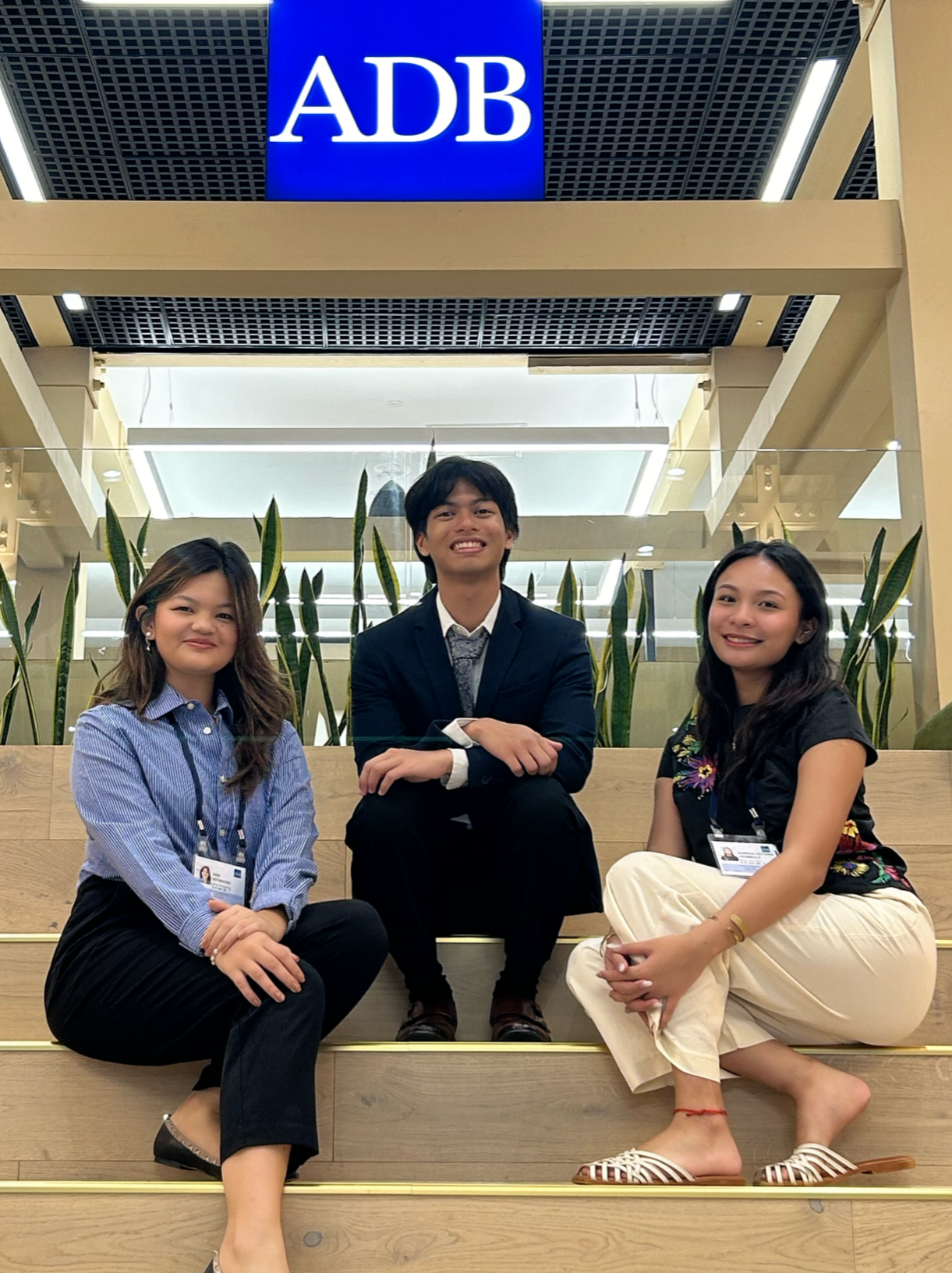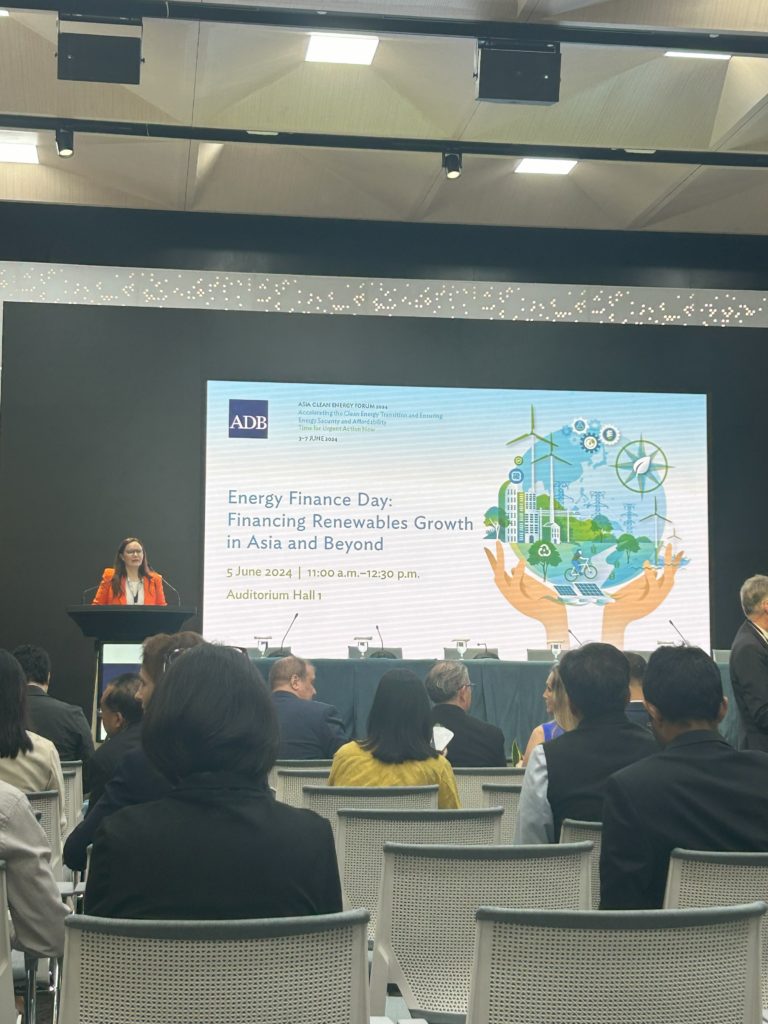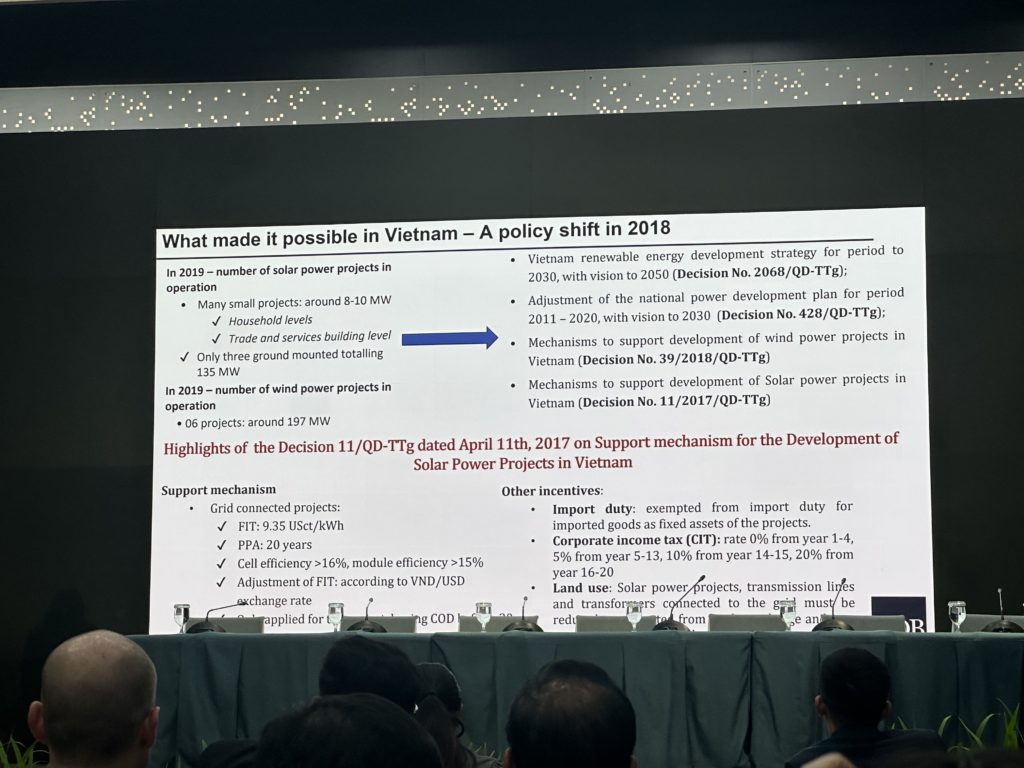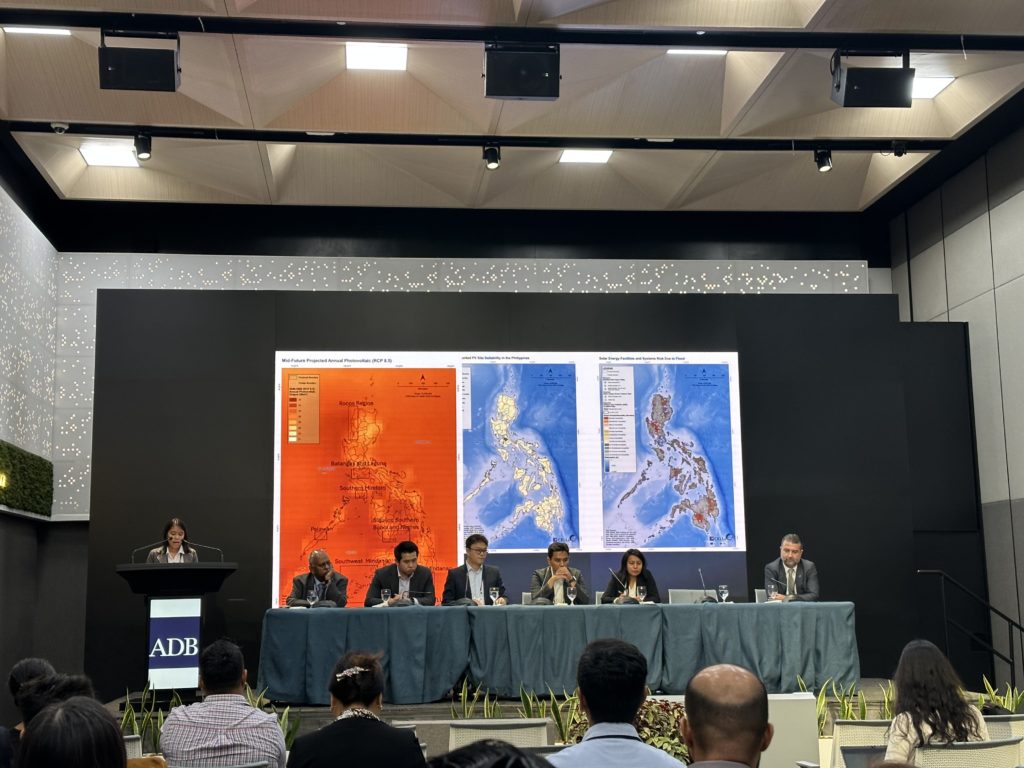Tom Alberto, Sabby Arambulo, Danii Nepomuceno – June 19, 2024
Originally published here on the RENDER Website.
RENDER attended the Asian Clean Energy Forum (ACEF), organized by the Asian Development Bank (ADB) in partnership with the United States Agency for International Development (USAID) and the Korea Energy Agency (KEA), is a premier event that convened clean energy practitioners from across the region. This forum brought together a myriad of professionals, including government agencies, private sector representatives, equipment and service providers, financiers, philanthropic organizations, researchers, and non-governmental organizations.

As the youngest participants in the room, we found ourselves both inspired and overwhelmed by the multitude of discussions surrounding us. The inspiration came from engaging with seasoned professionals and climate leaders, whose invaluable insights and knowledge will shape our approach and enhance our capacity to address climate and energy issues in the coming years. However, the urgency of the matter left us feeling overwhelmed. Bridging the gap between technical data and socio-cultural aspects, through the lens of NGOs, then transitioning to the private and public sectors, opened our eyes to the reality that advancing the clean energy agenda through climate financing is of utmost importance. This endeavor can only be truly socially sustainable if all sectors work hand-in-hand and actively participate.
ACEF 2024 centered around the theme of “Accelerating the Clean Energy Transition and Ensuring Energy Security and Affordability.” This theme is particularly timely and relevant as the region continually faces the dual challenges of transitioning to sustainable energy sources coupled with ensuring that seeded energy projects receive proper funding and research & development.

Throughout our attendance in these sessions, the high-level nature of the discussions and experienced officials were immediately evident. A quick scan around the room revealed that we were among the youngest, if not the youngest people in the room. In stark contrast to the bulk of attendees with their decades of experience in the energy sector, our small team of fresh graduates and interns, had much to learn.
For most of us, it was our first time attending a forum of that scale and nature. Therefore, as aspiring climate professionals, early in the field but eager to continue in it, what will we be taking along with us from this experience?
First, the importance of interdisciplinary and cross-border collaboration was evident. For instance, a session by the Korea Energy Agency (KEA) on ‘Collaborative Dynamics in Clean Energy: Roles of Governments, International Organizations, and the Private Sector’ emphasized the rapidly evolving global energy landscape as different countries employ varying strategies, from developing carbon-free energy sources to adopting energy efficiency policies. Recognizing that countries have varying capacities to apply Article 6 of the Paris Agreement, there is an urgent need for collaboration among multiple stakeholders to expedite the realization of these global commitments.
We were able to witness attempts at collaboration in action as networking was a large part of the event, with set schedules, spaces, and digital infrastructure for facilitating these interactions. Despite being among the youngest attendees, which often meant not many people were paying attention to us, we observed a dynamic and professional environment where numerous startups and other organizations were actively seeking financing and partnerships.

Second, acknowledging the varying capacities of countries to fulfill these goals and the importance of cross-border collaboration, the importance of climate finance becomes apparent. Climate finance was a major topic at this year’s forum, highlighting the need for financial resources to support developing nations in implementing sustainable energy solutions, enhancing infrastructure, and mobilizing resources to meet climate targets. Effective financial support ensures that all countries, regardless of their economic standing, can contribute to and benefit from the global transition to a low-carbon economy.
In fact, in a regional session focusing on ADB’s experience in private sector clean energy financing in Vietnam, it was highlighted that in 2019, several solar and wind power projects were enabled by national power development plans, strategies, and mechanisms. Crediting that a shift in policy allowed Vietnam to move from a heavy reliance on coal to an accelerated decarbonization of the region. These policies aiming for renewable energy development offered support mechanisms and importantly tax incentives including import duty exemptions and lower corporate income tax, which enticed investors by aiding their financing.
This brings us to our third point, the importance of the role of government and the need for climate-forward policies to address climate change and accelerate decarbonization. As financial resources remain a major barrier that prevents the adoption of renewable energy, public policy is needed to reduce risks and increase investments into renewable energy.
However, even with policies like that of Vietnam, the regional session also closed by warning about cases of failed investments as some projects were abandoned due to costly curtailment or failure to meet tariff deadlines. This means that while policies aiding in financing can be a gateway to decarbonization, it is not without its downsides if not carefully implemented.

While climate change is a major challenge today, it is also a growing cause for concern that if left unchecked, could spell even bigger problems for the youth of today. Though it is somewhat intimidating being the youngest in the room, the climate crisis is urgent and indiscriminate.
This ACEF highlighted the urgency of climate financing and driving forward the clean energy agenda in time for this year’s COP 29 in Baku, Azerbaijan. Guided by new opportunities for exploration and partnership-building, each participant was driven to share their experiences and insights on how the private and public sectors could forge the path forward in accelerating the transition to a low-carbon economy and overall a future in renewable energy. By addressing critical issues of energy security and affordability, the forum cemented the benefits of the clean energy transition across all sectors of society. Overall, ACEF reinforced the vital importance of achieving an Energy Transition that leaves no one behind.
Read more at RENDER.

